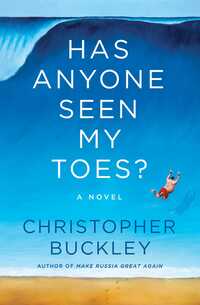About Face by William Giraldi
 Wednesday, September 7, 2022 at 7:05AM
Wednesday, September 7, 2022 at 7:05AM 
Published by W.W. Norton & Co./Liveright on September 6, 2022
“Some days you get up, you get going, and before you know it, you get lost, all your meanings muddled.” Seger Jovi (a pen name based on his two favorite rock stars) has a string of those days after he writes a scathing celebrity profile of Val Face for a Boston magazine. Seger is summoned to meet Face and, within minutes, succumbs to the man’s charisma, apologizes for even thinking of writing a harsh word about him, and signs on to be Face’s scribe. Seger narrates About Face. Although Seger makes hapless attempts to change his wardrobe and blend in with Face’s entourage, Seger allows the reader to evaluate Face from an outsider’s perspective.
When he was young, Valentino Detti stumbled upon a plaque in Boston’s Copley Square commemorating Kahlil Gibran. Valentino read The Prophet and mastered Gibran’s talent for “glib paradoxes.” He began to preach a philosophy of self-help on street corners. As it evolved, his motivational speeches involved finding a purpose or meaning — something he called your “devotion,” the thing that will define you. Valentino, a supernaturally handsome lad, rebranded himself as Val Face and became a celebrity. He is 33 when he meets Seger.
Seger notes that Face says “fairly obvious stuff” when he’s saying anything that isn’t a glib paradox (“Unhappiness results from your rush to happiness.”). While Seger recognizes Face as a charlatan and grifter, he’s also drawn to the man’s charisma. As Face observers, “If dollar signs are the great American language, then happiness is the great American religion.” Seger sees Face promising both while denying the importance of either.
About Face explores themes of self-improvement, celebrity, and family. Face has spirited his family away from public view and installed them in a country mansion. His mother worships him and feeds him meatballs; his father has never gotten around to reading Face’s memoir or attending his events. Face’s sister Talia declined an opportunity to share his wealth because she refused to sign a nondisclosure agreement. Talia represents the authenticity that Face has abandoned.
Face has achieved celebrity status for no obvious reason, much like Dr. Oz. Seger wonders whether Face will inevitably follow the path of Elvis, becoming “a drugged glutton” and “perspiring self-parodist.” Yet Face sees himself as a man of the people. He accepts the trappings of celebrity (he hasn’t turned down the fruits of merchandising) because (he claims) he has a large staff of people who depend on him, but he admits that he feels breathless trying to keep up with his Big Bang. His dark secret is that he must be what people want to see, not what he wants to be.
Face preaches the importance of authenticity, but celebrity compromises his authenticity by impairing his ability to make untainted connections. Solitude may be necessary to recognize and cultivate the benefits of an inner life (at least that’s what Seger argues), but Face never has a moment of solitude. Apart from his followers, Face is always surround by assistants who have assistants who have assistants. How is it possible for Face to be the person he claims to be? The answer to that question is found in the novel’s climax.
While the novel’s themes are serious, the mood is light. Tongue-in cheek humor pervades the novel. Celebrity self-improvement gurus are easy to mock and families are typically a fertile source of humor. Some of the humor flies in from left field, as when Face’s bodyguard and father debate the relative merits of Barry Manilow and Neil Diamond.
Music also fuels the novel’s serious moments. One of the highlights is a spirited argument about the relative merit of Springsteen’s older and later albums. The discussion starts with Seger’s observation that Springsteen’s raw voice in the 1970s and 80s is more of a treat than his grunting in the 2000s. The argument morphs into a track-by-track comparison to determine whether Born to Run or Darkness at the Edge of Town is his best album. All of this leads to a discussion of the philosophy underlying Springsteen’s work. Is “Thunder Road” advocating escapism as a remedy to “a town full of losers” (escape as a means of avoiding responsibility and compromise with family and community) or is it about a man who is taking the initiative to enlarge his life, to cast off anchors and pursue ambition? The same questions could be asked of Face. Did he run away from his life instead of dealing with it or did he have the courage to make his life into something bigger? As Seger sees it, Springsteen got back to his roots in Darkness while Face has turned his back on his roots. Face's disagreement may explain why he prefers Born to Run.
William Giraldi suggests the possibility of feeling compassion for certain celebrities, at least those (like Elvis) who might have been caught up in something they can’t control, as opposed to those (like Dr. Oz and Tony Robbins) who are phony from the start. The theme of celebrity nods at the phenomenon of celebrity melodrama — the public glee when celebrities suffer a meltdown, all the better if it produces a viral mugshot. Seger believes that the reaction to melodrama is driven by the belief that celebrities are spoiled and deserve whatever misfortune befalls them, and by the “Aristotelian formula” that “the witnessing of tragedy, in its stirring of pity and fear, endorses the catharsis of those emotions.” But we forget (or don’t care) that the suffering celebrity is still a human.
Perhaps someone like Face deserves our sympathy. Is it possible that celebrities like Face might learn to be a better person because of misfortune? In the spirit of celebrity melodrama, the novel’s ending offers an encouraging but ambiguous answer. And the last paragraph offers a bit of self-help advice for readers who didn’t grasp the point of the amusing story.
RECOMMENDED



